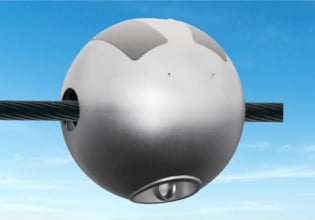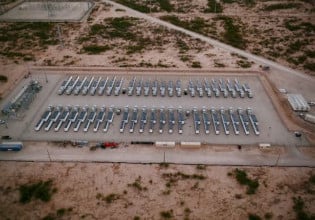Do Electric Trucks and Airplanes Reduce Emissions?
Research studies explore the benefits of electric trucks and airplanes on greenhouse gas emissions.
Transitioning to electric passenger vehicles can reduce carbon emissions, but other sectors, such as aviation and heavy-duty trucking, also contribute to greenhouse gases.
However, researchers are investigating the benefits of replacing trucks and airplanes with electric alternatives. Two recent studies examining the benefits of electrifying trucking and aviation demonstrate how impactful an electric transition can be for both modes of transportation.
Electric airplane. Image used courtesy of Evia Aero
All-Electric Aircraft
Researchers at Chalmers University of Technology explored a two-seater all-electric aircraft's comprehensive life cycle assessment to better understand its potential benefits.
The team’s approach traced the aircraft's environmental footprint from its inception through its operational life to its eventual disposal. To ensure the accuracy of their analysis, the researchers relied on data and records provided by an aircraft manufacturer. This data formed the backbone of their study, enabling them to construct detailed models of critical aircraft components such as the lithium-ion battery, electric motor, inverter, instrument panel, and seating.
An absolute comparison of global warming impacts in different scenarios. Image used courtesy of Arvidsson et al.
The team then used one hour of flight time as the functional unit for comparison. This provided a standardized basis for assessing and comparing the environmental impacts of the electric aircraft with those of a conventional, fossil fuel-based counterpart. The findings revealed a nuanced picture: despite the necessity for multiple battery replacements over the aircraft's operational lifespan, the electric variant showcased a markedly lower contribution to global warming than its fossil fuel-based alternative.
Specifically, the material requirements for the aircraft create a “break-even time," the number of flight hours at which the electric aircraft is advantageous, of 1,000 hours. This advantage persisted even under scenarios characterized by high-carbon intensity electricity, underscoring the electric aircraft's potential to significantly mitigate the aviation sector's climate impact.
However, the study also sheds light on a critical trade-off associated with the electric aircraft, particularly its heightened impact on mineral resource depletion. This was primarily attributed to the extensive use of lithium-ion batteries. The airframe, constructed from carbon fiber-reinforced composites, and the battery system emerged as significant contributors to the aircraft's overall environmental footprint.
All-Electric Trucks
At the University of Technology Sydney, researchers addressed the significant challenge of decarbonizing the transport sector, specifically focusing on the disproportionate emissions from Australia's freight trucks.
Although trucks constitute only 8% of road travel in Australia, they are responsible for 27% of the transport sector's emissions. Building on a 2022 study analyzing the emissions of Australian passenger cars and SUVs, this research turns its attention to trucks, evaluating the life-cycle greenhouse gas emissions of different truck sizes and technologies (diesel, hydrogen, and electric) for the year 2019 and under a future decarbonized scenario.
The 2019 findings revealed electric trucks, encompassing battery electric and hydrogen fuel cells, initially had higher life-cycle emissions than diesel trucks. This was largely due to the electricity grid and hydrogen production's heavy reliance on fossil fuels at the time. Researchers also expressed concerns about the durability of battery and fuel cell systems in heavy-duty applications like long-haul trucking, where vehicles can clock up to 2 million kilometers over their lifetime. They concluded these conditions added to the emissions burden due to potential system replacements.
Electric vehicle sales share by vehicle type and country in 2010 versus 2022. Image used courtesy of International Energy Agency
However, the study projects a significant shift in the future, particularly as Australia moves towards a decarbonized electricity grid. In this scenario, battery electric trucks are expected to offer the most substantial emission reductions, with an average cut of 75-85% across the fleet, outperforming hydrogen trucks, which are projected to achieve 50-70% reductions. This advantage is attributed to advancements in battery and fuel cell durability, renewable electricity, and hydrogen production.
Decarbonizing Transportation
Based on recent studies from Chalmers University of Technology and the University of Technology Sydney, it's clear electrifying aviation and heavy-duty trucking can bring significant benefits. As the transition towards EVs continues in the consumer sector, a similar shift in aviation and trucking will likely have a notable impact on the future of green transportation.









